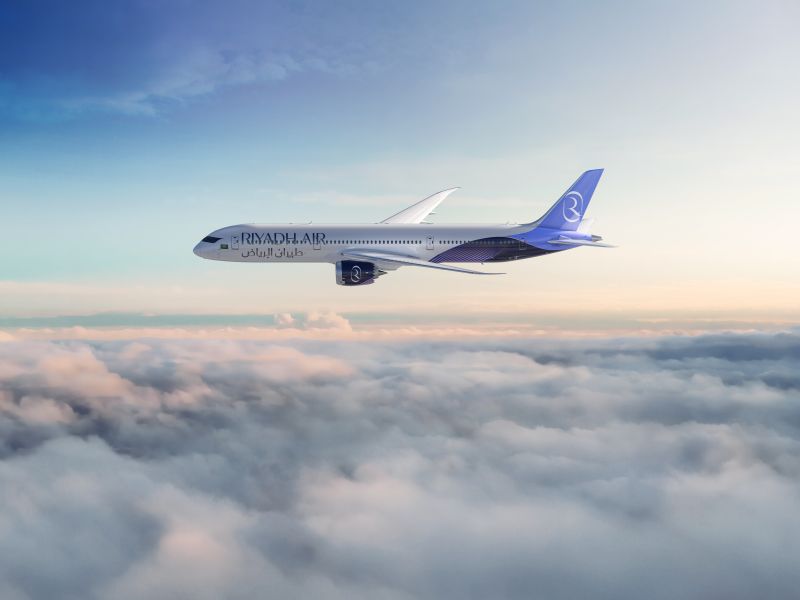Riyadh Air Unveils Next-Generation IFE Strategy
Share
Riyadh Air, Saudi Arabia’s new airline, has detailed its comprehensive in-flight entertainment (IFE) strategy. It positions itself as a digitally native carrier focused on personalised passenger experience.
Speaking at the APEX IFSA EXPO in Long Beach, Anton Vidgen, Vice President of Guest Experience, revealed the airline has selected Panasonic’s Astrova system as its IFE platform. “We see ourselves as a digitally native airline,” Vidgen explained. “Digital is really at the core of our services and operations.”

The system features 4K OLED technology with a modular design that allows for future upgrades. Economy seats will feature 13.3-inch monitors with dual USB-C power ports, while the premium economy cabin will offer nearly 16-inch screens with four USB-C ports. Business class passengers will experience entertainment on 22-inch monitors equipped with universal power, dual USB-C, and USB-A ports.
In a departure from industry norms, Riyadh Air has eliminated traditional IFE handsets across all cabin classes, becoming one of the first full-service carriers to make this decision. This marks a significant shift from the traditional IFE control systems that have been a staple of airline entertainment for decades, often causing maintenance headaches due to broken cords and failing buttons.
The IFE interface design draws inspiration from popular streaming platforms, with Vidgen noting, ” We’re all very comfortable with these interfaces today.” This approach aims to reduce the learning curve for passengers through familiar navigation patterns.
Personalisation is a significant feature of the airline’s IFE strategy. Passengers can pair their smartphones with the system and access their profiles and continuing content from previous flights. The system will maintain passenger preferences and watchlists across journeys, mirroring the convenience of home streaming services.
A key technological feature is implementing a Modular Interactive (MI) interface, which allows the airline to rapidly deploy interface updates and special themes without lengthy release processes. This capability enables quick deployment of custom experiences, such as a dedicated Kids Mode or special event themes.
The mobile-first approach extends beyond the aircraft. Before their flight, passengers can browse content and create watchlists through the Riyadh Air app. Once onboard, Bluetooth and Wi-Fi connectivity will enable seamless integration between personal devices and the IFE system.
Looking ahead, Vidgen indicated that several major announcements are planned for the Future Investment Initiative conference in Riyadh, including developments in headset technology. The airline is also set to unveil its gaming strategy in early 2024, suggesting a comprehensive entertainment ecosystem is in development.
While wireless charging isn’t currently offered due to technological limitations in charging speed and reliability, the system’s design allows for integration when the technology matures. This comprehensive IFE strategy underscores Riyadh Air’s ambition to establish itself as a technology-forward carrier in the competitive Middle Eastern aviation market, with digital innovation and passenger experience at the forefront of its service proposition.


